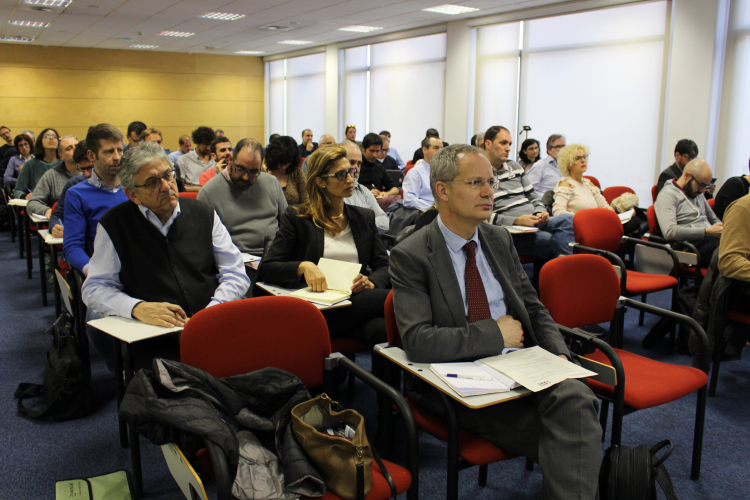Last Wednesday was held in Barcelona a new session CatLabs Program. The meeting was attended by representatives of municipalities and county councils in the province, universities, Point of ICT coworking spaces, laboratories digital manufacturing, social organizations and different areas of Government Administration (Education and Agriculture).
This meeting, the last of a series of presentations to the territory, served to review the actions taken so far by CatLab, make an analysis and share it publicly. During the event, the technical director of Digital Innovation of the City Council, Anna Majó, presented the program of digital social innovation in the Catalan capital.
During his speech, the Head of Digital Inclusion and Training of the Generalitat, Ricard Faura, explained that, since the adoption of CatLabs, have been made public presentations at international fairs and conferences (Smart City Expo Mediterranean Conference on Living Labs and Innovation Laboratories meeting in Bologna). Also, both the Ministry of Telecommunications and Digital Society Cybersecurity as i2CAT that energizes CatLab Network, explained the program to other areas within the Government and institutions like the Metropolitan Area of Barcelona (AMB) Autonomous University of Barcelona (UAB), the Association of Science Parks of Catalonia and the town councils of Sabadell, Badalona and Ruby.
In recent weeks, CatLabs has been present in the whole of Catalonia, detecting and creating synergies with local companies innovative. According to Ricard Faura, "These sessions have been very interesting and productive and have allowed us to detect a number of weaknesses, threats, strengths and opportunities of the Catalan innovation system."
Among the weaknesses highlighted the ignorance of the territory of the initiatives are promoted by their own agents, the difficulty of addressing challenges for the whole system and the inability to access sources of funding to ensure the sustainability of projects.
Instead, said Artur Serra, deputy director of i2CAT "has shown the vitality and variety of local initiatives spread throughout the country and that Catalan could be grouped into three different types: new structures , new structures within traditional institutions and programs for innovation in traditional structures. " Among the latest projects desataquen Innova FP and GirInnova and Local Action Groups.
Moreover, digital social innovation initiatives developed at the local level, with much voluntarism by their promoters and outside the official system, currently not part of the strategy RIS3CAT, innovation specialist Catalonia. This poses a risk of fracture among the major beneficiaries of the funds centers and this alternative system, which can lead to fatigue and frustration among local agents.
The articulation of the Network CatLabs facilitate collaboration between different local initiatives and 'families labs' and include official system institutions that want to develop innovative digital social innovation projects. Ricard Faura and Artur Serra acknowledged that while "we have the opportunity to articulate a true participatory innovation system and open to all citizens."
The network is structured around CatLabs spaces and centers recognized by international networks such as the European Network of Living Labs, the Foundation or FabLabs Telecentre Europe. The aim is to integrate these agents are added and all the other actors involved in innovation, according to a quad helix model, participatory, open and international connections.
Finally, Ricard Faura announced CatLabs actions planned until the end of 2017, that are "training local agents of social digital innovation in a pilot project with young youth guarantee profile; making new territory sessions to articulate local networks; the convening of a conference co-creation, which will set a series of challenges to achieve as a country, and the application of digital social innovation methodologies in the region. "



